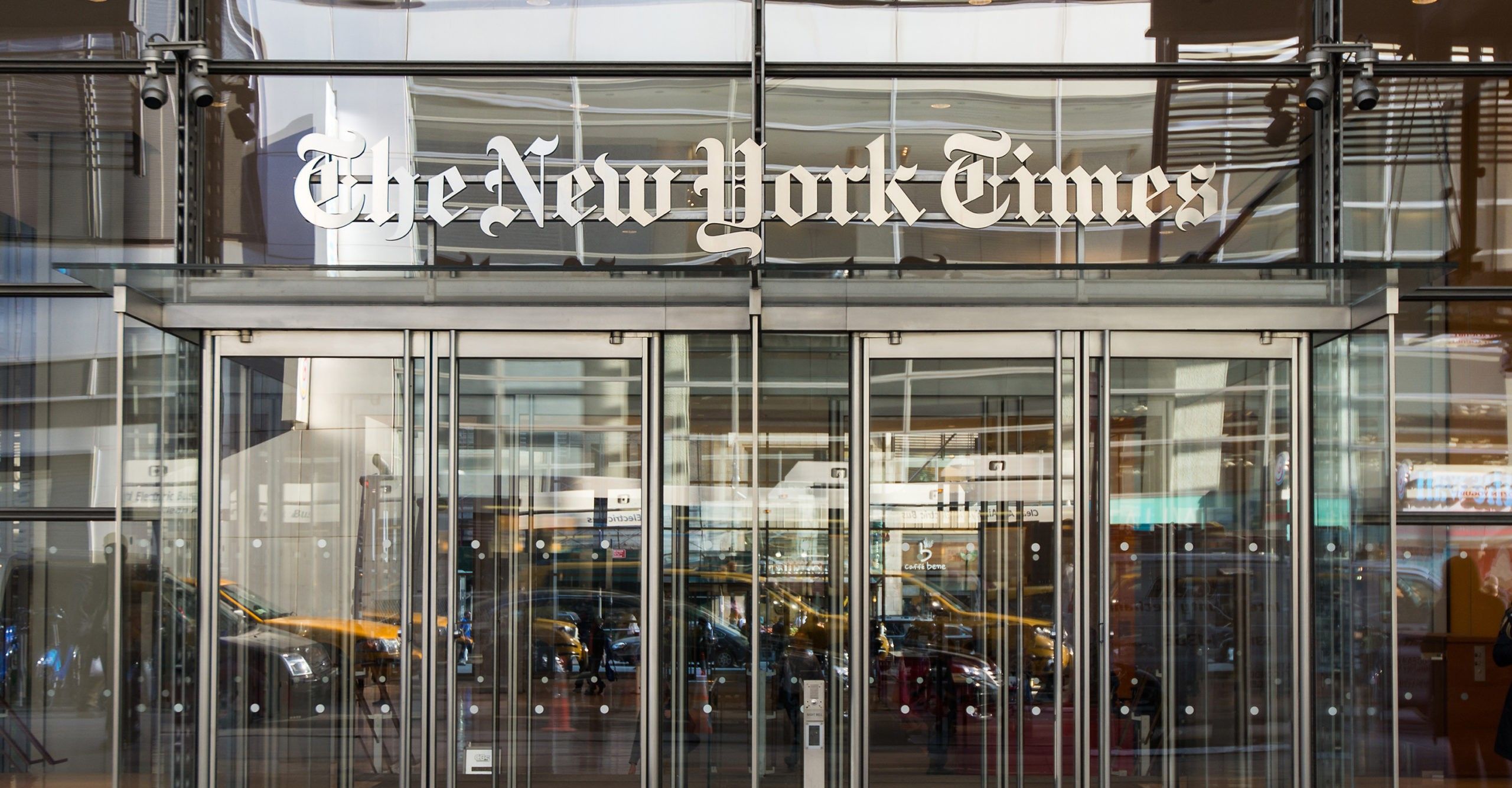The New York Times reported on Tuesday about the existence of a new organization dedicated to promoting human rights and democracy in the Arab world and quoted a critic without disclosing that the critic’s affiliated organization is funded by Saudi Arabia and the United Arab Emirates — two authoritarian Gulf countries accused of gross human rights abuses and targets of the new group.
The new organization, Democracy for the Arab World Now, or DAWN, is the brainchild of the late Jamal Khasshogi, a Saudi dissident and journalist who was murdered by Saudi agents — on orders from Saudi Crown Prince Mohammed bin Salman, according to the CIA — at the Saudi consulate in Istanbul in 2018.
According to the Times, DAWN will seek to carry out Khashoggi’s vision as a hybrid think-tank and human rights watchdog organization that will, among other products, publish articles in both English and Arabic by dissidents and other experts and activists that criticize the authoritarian methods carried out by Egypt, Saudi Arabia, the UAE, and others.
The Times went on to quote Hussein Ibish, senior resident scholar at the Arab Gulf States Institute in Washington, who said he didn’t think DAWN would have an impact because many would rather focus on U.S. economic and military relationships with Saudi Arabia, UAE, and Egypt rather than the malfeasance of their autocratic regimes.
“If the primary audience is going to be American policymakers, they are going to come up against the national interest and fixed alliances,” Ibish said, adding, “Nobody defends the U.S. relationship with these countries as a values-based confluence of Western democracy.”
A Saudi or Emirati official couldn’t have said it any better: don’t focus on the bad stuff we’re doing, particularly with the military gear you sell us, instead think about all the money you’ll be making.
And it just so happens that Saudi Arabia and the UAE in 2015 offered up millions in seed money to establish the Arab Gulf States Institute in Washington — Ibish’s employer. AGSIW also lists Saudi state owned oil giant Aramco and American defense industry giants Raytheon and Lockheed Martin as “corporate members.” Raytheon and Lockheed Martin have benefited financially from the ongoing Saudi-led war in Yemen, a war that is responsible for the world’s largest ongoing humanitarian crisis.
In its 2019 annual report, AGSIW lists also Lockheed, Abu Dhabi-based newspaper The National, the U.S.-UAE Business Council, and the American Chambers of Congress in Dubai and Abu Dhabi in its “Grants and Partnerships” section.
The Times report made no mention of AGSIW’s sources of funding or the conflicts of interest in Ibish’s criticism of DAWN (one of Ibish’s previous employers, the American Task Force on Palestine, also received funding from the UAE).
Ben Freeman, Director of the Foreign Influence Transparency Initiative at the Center for International Policy, lamented that it’s common that scholars from Saudi and UAE-funded think tanks offer commentary on Middle East issues without disclosing these potential conflicts of interest, and said readers have the right to know the biases of these expert opinions.
“It strains credibility to believe someone working at an organization founded with Saudi and UAE government money can provide truly objective insights about those countries,” Freeman told Responsible Statecraft. “It's incumbent on anyone quoting them to mention these potential conflicts of interest and provide their readers with the full context behind comments like this.”
The New York Times did not immediately respond to a request for comment.
















